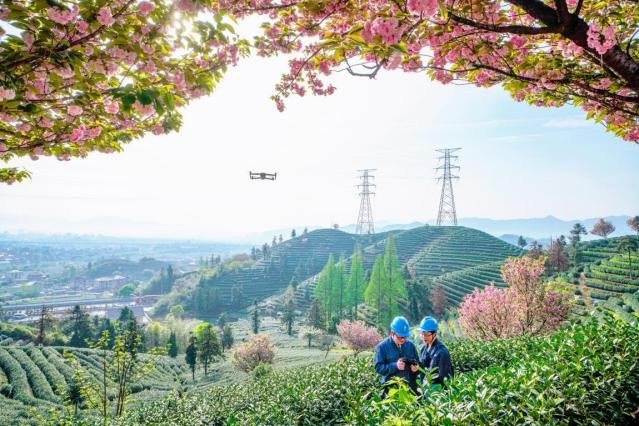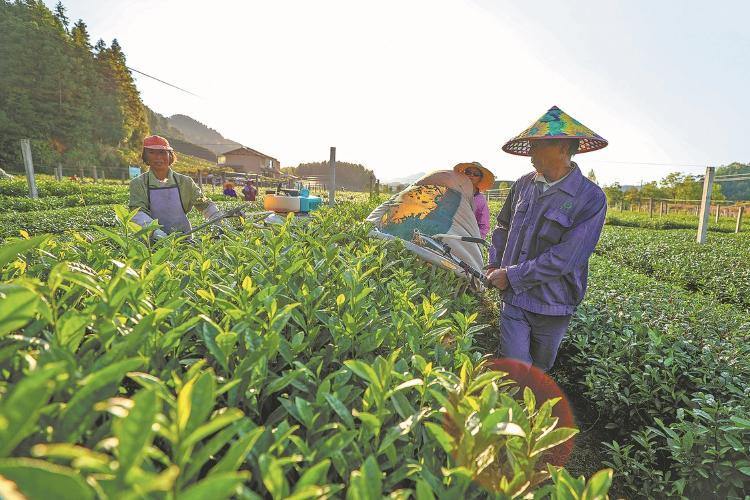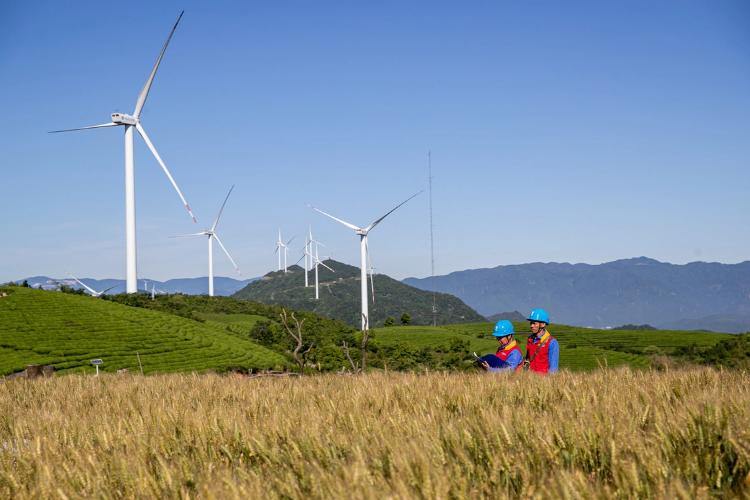Huzhou in East China's Zhejiang province shared its tips on sustainable development at the event, titled "China's Two Mountains Theory for Advancing Sustainable Development", which was held as part of the 2025 High-Level Political Forum on Sustainable Development.
The city presented its achievements in sustainable development in its ecology, industry, culture, and urban-rural integration under the guiding principle that lucid waters and lush mountains are invaluable assets at the United Nations headquarters.

An event takes place at the Taihu Lake Longemont Paradise, a popular tourism spot in Huzhou. [Photo/WeChat account: huzhoufabu]
Huzhou's presentation highlighted several transformative projects. One notable example given was Changxing county's Taihu Lake Longemont Paradise, where abandoned mining pits have been transformed into a world-class cultural and tourism complex. This project exemplifies Huzhou's strategic approach of integrating urban development with ecological restoration.
In the financial sector, Huzhou has led the way in green finance reforms since 2017, establishing a comprehensive green finance standard system. This includes digital evaluation tools like carbon accounts, which help financial institutions offer favorable terms for environmentally friendly projects, thereby supporting a low-carbon transition.
Additionally, Huzhou's mulberry-dyke and fish-pond system shows ecological farming practices that have endured for 2,500 years, demonstrating a sustainable agricultural model that has been lauded by UNESCO.
Lastly, Yucun village in Anji county was cited as a highlight of Huzhou's rural transformation. Once reliant on environmentally damaging industries, the village has embraced ecological principles and sustainable development, recognized as one of the Best Tourism Villages by the United Nations World Tourism Organization.




